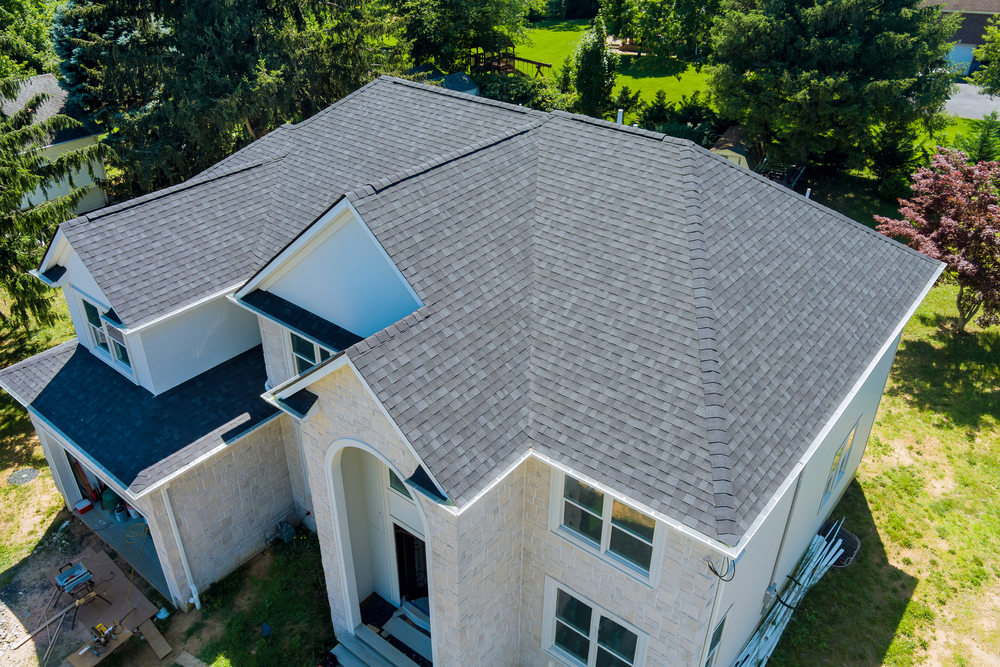If you're looking to upgrade or replace a roof on your home or any other kind of building, lifespan will naturally be one of the chief elements you're considering. There are several factors that influence how long your roof will last, including some that speak to roof material and installation quality plus others that speak to long-term roof care and maintenance.
At The Roof Doctor, we're here to provide quality roof replacement and new roof services to clients around Salt Lake City, West Valley City and West Jordan, including detailed run-downs of expected lifespan and the factors that influence it for any of our roofing materials. Here are the most important such variables, including several elements you have some control over in regard to roof maintenance and upkeep.
Roof Material
Naturally, one of the single largest determinants of roof lifespan is the material it's made from. Here are some general expected lifespans for popular materials:
- Asphalt shingles: The most common type of residential roofing, asphalt shingles generally have a lifespan between 15 and 30 years.
- Metal roofs: These can last anywhere from 40 to over 70 years, depending on the type of metal used and the quality of installation.
- Tile roofs: Generally made from concrete or clay, tile roofs can last up to 100 years if properly maintained.
- Slate roofs: One of the longest-lasting roofing materials, slate can easily last over 100 years with proper care.
Underlayment
Another vital material-related factor is the underlayment, which sits between your roofing material and the roof deck. This serves as an extra layer of protection against water damage and can help increase the lifespan of your roof. Typically made from materials like felt or synthetic materials, underlayment should be replaced every 20 years.
Underlayment areas are also vital because they prevent mold and mildew from building up on your roof. When these are present, they can lead to damage and shorten the lifespan of your roof.
Installation Quality
Even if you choose a high-quality roofing material, it won't reach its full lifespan potential if it's not installed properly. Poor installation can lead to leaks, damage, and premature wear and tear. That's why it's crucial to work with a reputable roofing company that has experience and expertise in installing roofs with your chosen material.
A professional roofing installation will also include proper ventilation, which helps prevent moisture buildup and extends the life of your roof.
Local Climate
Another important factor to consider is the local climate. Extreme weather conditions like heavy rain, strong winds, and harsh sunlight can all take a toll on your roof and shorten its lifespan. That's why it's essential to choose roofing materials that are suitable for the specific climate in your area.
For example, metal roofs may perform well in areas with high winds and hailstorms, while clay tile roofs may not be the best choice for areas with frequent extreme temperature changes.
Slope
In many cases, the slope of your roof will impact its lifespan. Roofs with steeper slopes tend to last longer because they allow water and debris to slide off more easily. On the other hand, flat roofs are more prone to water buildup and can experience damage if not properly maintained.
The degree of slope is also important for different roofing materials. For example, asphalt shingles typically need a steeper slope to perform optimally.
Insulation and Ventilation Quality and Maintenance
Two important factors that often go overlooked in terms of roof lifespan are insulation and ventilation. Proper insulation helps regulate the temperature within your home, preventing heat loss or gain that can damage the roof structure. Ventilation allows for proper airflow and prevents moisture buildup, which can lead to mold and mildew.
It's essential to regularly check and maintain these elements to ensure they're functioning properly, as they play a significant role in the overall health and longevity of your roof.
Other Roof Maintenance
In addition to insulation and ventilation, there are other maintenance tasks that can help extend the lifespan of your roof. These include regular inspections and repairs as needed, cleaning gutters and removing debris from the roof, and addressing any potential issues before they become major problems.
Roof Color
Finally, while this is not as large of a factor as the others mentioned, the color of your roof can also impact its lifespan. Darker colors tend to absorb more heat and can lead to faster deterioration, while lighter colors reflect sunlight and help keep the roof cooler.
Overall, there are several factors that influence how long your roof will last. By choosing high-quality materials, working with a reputable roofing company for installation, and properly maintaining your roof, you can ensure that it reaches its full potential lifespan. And remember, regular inspections and repairs are key to catching any issues early on before they turn into costly problems.
So if you're in need of a new roof or looking to lengthen the lifespan of your current one, don't hesitate to reach out to The Roof Doctor for expert advice and services. We're here to help keep your roof in top shape for years to come, whether you're in SLC, West Valley City, West Jordan or any nearby area.

